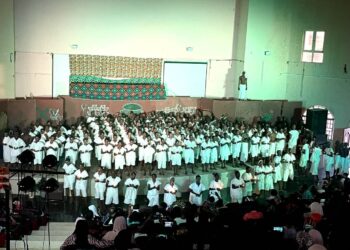By Sayo Àlàgbé
stephenalagbe08@gmail.com

Successive generations do not come into the world merely for existence without purpose. The birth of human beings across different nations contributes to the fabric of the global community. Each individual is meant to make an impact, contribute meaningfully and positively to society, and fulfill a purpose before returning to the celestial realm to give an account to the omniscient Creator. Life’s journey is purposeful—whether for good or ill. The mainpont of writing this articles hinges on human neglect of their health and wellbeing at their own peril and sudden death. Life they say has no duplicate. This assertion is begging for answer – the reason why human beings generally risk their lives to carelessness, lucre and pleasure, forgetting that once life is lost, everything is lost.
Even in ancient times, historical records reveal that early humans used their God-given wisdom to sustain themselves, improve their health with natural remedies, and live long lives. The Bible and the Quran testify that many people in those eras lived up to 70, 80, 90, and even 100 years. However, in today’s world, despite the availability of hospitals, advanced medical technology, and expert healthcare professionals, human lifespan is declining. This issue is particularly pronounced in Africa, especially in Nigeria, where people prioritize work over their well-being.
In modern Nigeria, many people barely live beyond 60 years due to negligence, the pursuit of wealth at all costs, indulgence in pleasure, immorality, excessive alcohol consumption, and other reckless lifestyles. The Holy Books affirm that “work strengthens the mind as labor does the body.” Indeed, work is essential for survival and providing for one’s family. A Yoruba proverb even states that “a man without work does not deserve food.” Nigerians are hardworking and strive to make ends meet, yet their major flaw is their nonchalant attitude toward health.
Many Nigerians go an entire year without visiting the hospital for a routine check-up. The relentless drive to amass wealth—whether through legitimate or dubious means—takes precedence over health. The desire to build luxurious mansions, drive expensive cars, and indulge in extravagance often overshadows the necessity of regular health check-ups. However, the way we work, eat, drink, and treat our bodies will ultimately determine our longevity.
In present-day Nigeria, people are dying at an alarming rate. Some succumb to poverty and hunger, others to unemployment despite obtaining degrees and vocational skills, while many meet untimely deaths due to overwork and failure to monitor their health. Sudden deaths caused by hypertension and cardiac arrest are rampant. A recent example is the EFCC officer who reportedly collapsed and died while on duty in Lagos State.
This tragic trend serves as a clarion call to all Nigerians, young and old, to take their health seriously. Only those who prioritize their well-being will live long enough to enjoy the fruits of their labour.
You can get every of our news as soon as they drop on WhatsApp ...To get all news updates, Join our WhatsApp Group (Click Here)












This might be as a result of poverty, that is the hospital bill that’s not there or total ignorance.